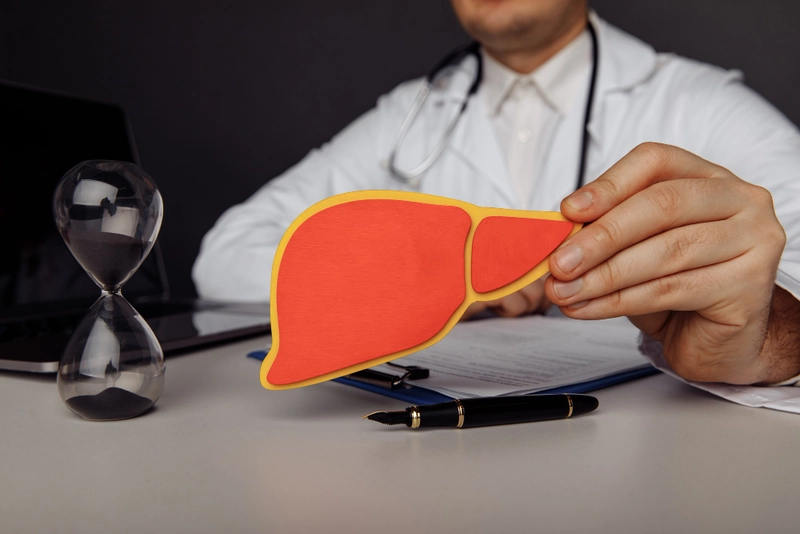- Published on: Jul 23, 2025
- 3 minute read
- By: Secondmedic Expert
Effects Of Drinking Less Water On Your Body
Water is life. But in the rush of daily routines, we often forget to hydrate. What seems like a small habit—skipping a glass of water—can slowly start to harm your body in big ways.
Let’s explore the effects of drinking less water on your body, how to spot the signs of dehydration, and what you can do to fix it.
Why Water Is So Important
Your body is about 60% water. Every cell, tissue, and organ needs water to function properly. Water:
-
Regulates temperature
-
Helps in digestion
-
Flushes out toxins
-
Cushions joints
-
Keeps skin healthy
-
Supports brain performance
Even mild dehydration can affect all of these functions.
7 Major Effects of Drinking Less Water
1. Tiredness and Fatigue
Water is vital for energy. Without enough hydration, your blood volume drops. That means your heart works harder to pump oxygen—and you feel tired, sluggish, and low on energy.
Solution: Start your day with a glass of water. Carry a reusable bottle to remind yourself.
2. Headaches and Brain Fog
Your brain is 75% water. When dehydrated, the brain temporarily shrinks from fluid loss—triggering tension headaches, poor concentration, and even anxiety or brain fog.
Tip: If you feel a headache coming on, drink water before reaching for painkillers.
3. Constipation and Poor Digestion
Water helps food move through the intestines. When there's not enough, stool becomes hard and difficult to pass—causing constipation, bloating, and stomach cramps.
Boost: Add fiber + hydration for better digestion. Chia seeds soaked in water work wonders.
4. Dry Skin, Lips & Eyes
If your skin feels dull, itchy, or flaky, or your lips crack easily—you may be dehydrated. Your body pulls water from the skin to keep vital organs running, leaving your skin dry.
Hydrate inside out: Drink water, use a moisturizer, and avoid excessive caffeine.
5. Kidney Strain & Dark Urine
Kidneys need water to flush out toxins through urine. Less water leads to concentrated, dark-colored urine and increases your risk of kidney stones or infections.
Tip: Clear or light-yellow urine = good hydration. Anything darker is a red flag.
6. Mood Swings and Irritability
Even mild dehydration can affect your mood, memory, and focus. You may feel more anxious, confused, or irritable without realizing why.
Mental boost: Sip water regularly during work, especially during stressful tasks.
7. Slower Metabolism
Studies suggest dehydration can reduce your resting energy expenditure. That means your body burns fewer calories—even at rest. This slows weight loss efforts and energy levels.
Quick fix: A glass of water before meals may also reduce overeating and boost digestion.
How to Know You’re Not Drinking Enough
Look for these early signs of dehydration:
-
Dry mouth
-
Dark urine
-
Infrequent urination
-
Dizziness or lightheadedness
-
Dry skin or lips
-
Bad breath
-
Sugar cravings
-
Poor concentration
Lab Tests to Monitor Hydration & Organ Health
If you're concerned about long-term dehydration effects, consider these tests (available at SecondMedic.com):
-
Kidney Function Test (KFT)
-
Electrolyte Panel
-
Urinalysis
-
Creatinine & Urea levels
SecondMedic offers home sample collection via trusted labs like Thyrocare.
Tips to Stay Hydrated Every Day
-
Start your day with water – before tea or coffee
-
Carry a water bottle – and refill it 3–4 times a day
-
Add flavor – lemon, cucumber, or mint make water more fun
-
Eat water-rich foods – like watermelon, cucumber, oranges, and spinach
-
Use hydration reminder apps – like WaterMinder or Drink Water Reminder
-
Sip slowly throughout the day – instead of gulping large amounts at once
Who Is at Higher Risk?
You’re more likely to suffer from dehydration if you are:
-
Elderly
-
A child or baby
-
Diabetic
-
Frequently outdoors in the sun
-
Taking diuretics or medications that cause water loss
-
Recovering from vomiting or diarrhea
Conclusion
Water may seem simple, but its power is unmatched. From smooth digestion and glowing skin to better mood and brain clarity—hydration supports almost every function in your body.
Now that you know the effects of drinking less water on your body, take control by making hydration a daily habit.
Your body—and your mind—will thank you.
Read FAQs
A. Adults should aim for 8–10 glasses (around 2–2.5 liters) per day, but it can vary with activity level and climate.
A. Yes. Dehydration can affect concentration, mood, memory, and even increase anxiety or brain fog.
A. Absolutely. Water supports metabolism and helps reduce hunger, making it important for weight control.
A. Chronic dehydration can lead to urinary tract infections, kidney stones, and long-term organ stress.
A. Common signs include dry mouth, dark urine, dizziness, dry skin, tiredness, and feeling thirsty often.
Our Services
Request A Callback
Recent Posts
Liver Function Test with Expert Doctor Advice
Sep 04,2025
Effects of Working Late Nights on Mental Health
Sep 03,2025
Daily habits that increase uric acid silently
Sep 02,2025
Why Multitasking Reduces Productivity and Focus
Aug 30,2025









